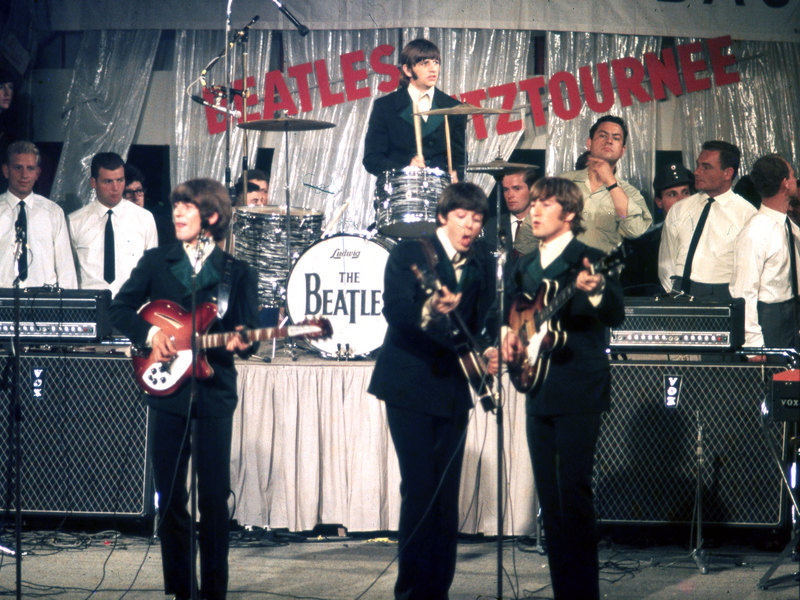proofdaily.com – The 1960s was a decade of profound change, marked by social upheaval, political turmoil, and cultural revolution. Amidst this transformative era, a quartet from Liverpool, England, emerged to become not just a musical phenomenon but a symbol of the decade’s spirit. The Beatles, with their innovative music, charismatic personalities, and unparalleled influence, shook the world in ways that few could have anticipated. This article delves into the remarkable journey of The Beatles and their indelible impact on the 1960s and beyond.
The Birth of Beatlemania
The story of The Beatles began in the early 1960s, with John Lennon, Paul McCartney, George Harrison, and Ringo Starr at its heart. Their journey from the clubs of Hamburg and Liverpool to the pinnacle of global fame was meteoric. In 1963, with the release of hits like “Please Please Me” and “I Want to Hold Your Hand,” Beatlemania was born. This phenomenon saw the band’s fans, particularly teenagers, exhibit unprecedented levels of adoration and hysteria. The Beatles’ arrival in the United States in 1964, marked by their iconic appearance on The Ed Sullivan Show, solidified their status as international superstars.
Musical Revolutionaries
The Beatles were more than just pop stars; they were musical revolutionaries. Their willingness to experiment with different genres, sounds, and recording techniques pushed the boundaries of what was considered possible in popular music. Albums like “Rubber Soul” and “Revolver” showcased a maturation in their songwriting and a growing interest in Eastern philosophy, psychedelia, and social commentary. “Sgt. Pepper’s Lonely Hearts Club Band,” released in 1967, was a groundbreaking work that further demonstrated their innovative spirit, influencing countless artists and genres that followed.
Cultural Icons and Social Commentators
The Beatles’ influence extended beyond music. They became cultural icons, embodying the hopes, dreams, and rebellious spirit of a generation. Through their music, films, and public statements, they addressed issues such as peace, love, and the futility of war. The song “All You Need Is Love,” broadcast globally via satellite in 1967, encapsulated the era’s counterculture ethos. Their involvement in the anti-war movement and their advocacy for peace, most notably through John Lennon and Yoko Ono’s “Bed-Ins for Peace,” made them powerful voices for change.
The End of an Era
By the late 1960s, the pressures of fame, creative differences, and personal growth began to take their toll on The Beatles. The release of “The Beatles” (also known as the “White Album”) in 1968 hinted at the band’s fragmentation, with each member pursuing individual projects. Their final album, “Abbey Road,” released in 1969, showcased both their musical genius and the inevitable end of their journey together. The Beatles officially announced their breakup in 1970, marking the end of an era that had irrevocably changed the landscape of music and culture.
Legacy
The legacy of The Beatles is immeasurable. They remain the best-selling band in history, with their music continuing to inspire and influence new generations of artists. Their impact on the 1960s was profound, embodying the decade’s spirit of change, hope, and rebellion. The Beatles’ ability to evolve with the times, their fearless experimentation, and their enduring message of love and peace have cemented their place as one of the greatest bands of all time.
Conclusion
The Beatles’ decade-long journey from local Liverpool band to global icons was nothing short of extraordinary. Their music, cultural influence, and enduring legacy are a testament to their talent, vision, and the unique moment in history they helped define. The Beatles shook the world in the 1960s, and their impact continues to resonate, reminding us of the power of music to inspire, unite, and change the world.
